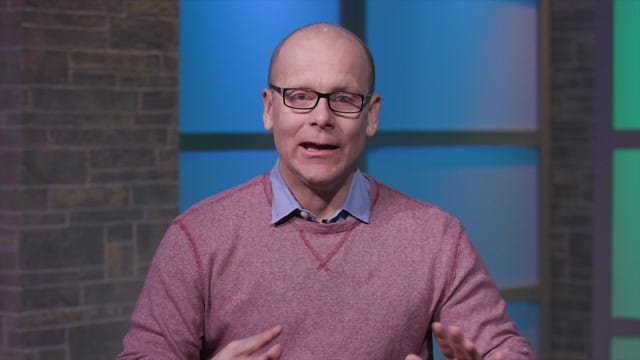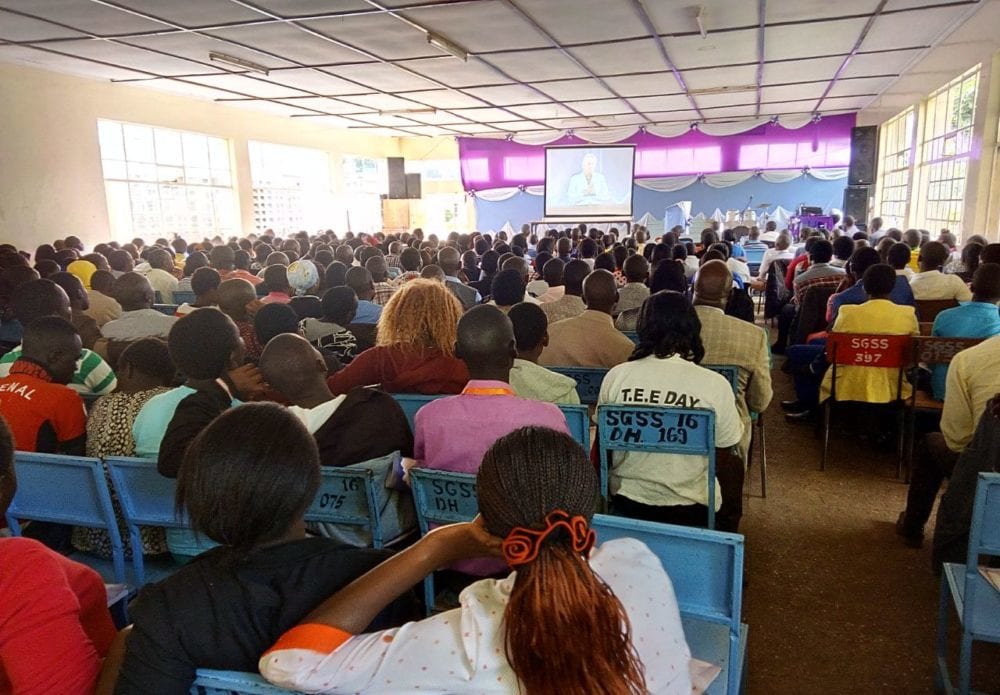
Information forms the human spirit and soul the way food forms the body.

Information forms the human spirit and soul the way food forms the body.

Most managers who connect with us want to create cultures where their teams achieve high-performance, but few grasp that for a culture to really take off, teammates must encourage each other on a daily basis.
Colleagues must be empowered to support one another even when situations aren’t ideal—such as when a boss is too busy, when there is outright dysfunction above or when there are overwhelming deadlines—so that the entire organization doesn’t topple like dominoes.
If we had to identify one secret sauce in building a great culture, it is in rooting for each other: Having each other’s backs, appreciating strengths and recognizing what we value the most about each other—for every worker in the field, behind every desk, answering every phone call, working with every client. In just about every employee engagement survey we’ve conducted over the past 20 years, “lack of recognition” is one of the top issues employees complain about.
If we had to identify one secret sauce in building a great culture, it is in rooting for each other.
Our research shows strong evidence that employees respond best when they are recognized for things they are good at and for those actions where they’ve had to stretch. It is this latter practice that makes people want to grow and develop. Many companies use “top-down” praise, and we applaud that, but manager-to-employee and peer-to-peer recognition fulfill separate human needs.
So how much recognition versus criticism is enough in a high-performance culture? Gallup’s workplace research suggests praise should outweigh criticism by a 5-to-1 margin.
People want to know that their bosses see their effort and truly value it. This ties to feelings of job security and well-being. Employees also need the affirmation that their coworkers see them as trustworthy, dependable and creative. This reinforces that you have friends at work, acceptance and that others have your back.
This is an ecosystem of psychological safety that mitigates natural infighting and jealousies. Imagine a workplace like this. The work is demanding, but it’s paced in a way that is sustainable. Along the way, you are encouraged not only by your boss but your coworkers. If you make a mistake, you get immediate feedback for improvement and a sincere pat on the back for taking a risk. There are celebrated milestones everywhere that keep you glued to your job. You want to stay and make a difference with people you like and who like you.
However, some managers have mistakenly believed that they should maintain a balanced approach—one compliment to each criticism.
Here’s an example (based on lots of examples we’ve heard): A manager wants to recognize Erin’s hard work on an important customer order the night before. At the next morning huddle, he says, “I want to say thanks to Erin for staying late to get that order out last night. That shows ownership, one of our core values around here, and it was a real win for our customer who needed those supplies.” Sounds great, right? Specific—tied to a core value, and timely—he doesn’t delay.
But the manager continues, “Now, just a thought while we are all gathered. If Erin would have followed the procedure we’ve outlined in the shipping handbook it wouldn’t have taken so long. I think you all got the memo on that, didn’t you? I think it’s important to go over that again….”
Oh, so close.
Public recognition is about reinforcing the positive.
It’s not that the manager is a bad guy, it’s just that he’s busy and wants to point out improvement ideas. Wrong place, wrong time. What do you think Erin will remember from this interaction? Chances are, nothing but the negative. Yes, Erin and the team need to be taught correct procedure, but not now.
Public recognition is about reinforcing the positive: She wowed a client, took ownership, and acted like a real team player. Later, when Erin begins working on the next order, the manager can kindly steer her in the right direction.
Just not today.
This article originally appeared on Chester Elton’s LinkedIn platform.

Brad Lomenick coaches leaders on ways to build Sabbath and Margin into their lives.

Leadership matters—even in prison.
In 2018, the Summit was live-streamed to incarcerated men and women at more than 60 prisons where attendees could receive tools and encouragement to become effective leaders.
We received this letter from a man who is incarcerated at Riverbend Correctional Facility, telling us that at the Summit, he decided to give his life to Christ. Please pray for him, that God will prepare him for this calling.
This was my first Summit. I was one of 150 people selected to attend The Global Leadership Summit at Riverbend Correctional Facility in Milledgeville, Georgia. I become eligible for parole in 2021.
Thank you for your commitment, love and compassion and for not forgetting those of us who are in prison. We have influence here, with our families and in the world when we join it again.
I thank God that of the 1,500 inmates in this prison, he selected me to attend this Summit. It has changed my life. How do I say thank you to our Lord and to the Leadership Summit other than to just say thank you?
I don’t have the financial means to donate to the Summit right now. But from the inspiration of all the speakers and being moved by the Holy Spirit, I give my life completely to Christ.
I’ve made so many promises to Christ in the past that I’ve not kept. I can do ALL things through Christ. Please pray for me. The Leadership Summit has inspired and empowered me to embrace the leadership he has placed deep down in my soul.
Thank you for your commitment, love and compassion and for not forgetting those of us who are in prison. We have influence here, with our families and in the world when we join it again.
Please pray that God will bless the ministry I want to start when I get released.
Sincerely,
Sydney
Riverbend Correctional

Every Tuesday and Thursday morning at 8:30 am CST, our staff gathers together to pray for our partners across the globe.
Please join us in prayer as we lift up the international Summit events happening this weekend. Pray for God’s anointing on every detail and that those who attend would leave feeling equipped, inspired and encouraged to lead the change they long for in their communities.
And if you have a prayer request, please share it with us. We would be honored to pray with you!
Glen Iris, Australia
Christchurch, New Zealand
Nairobi, Kenya
We’re praying for a movement of leaders who view people as men and women created by God. As leaders, we are here to serve so people can achieve their God-given calling.
Johannesburg, South Africa
Ibadan, Nigeria
Taraba, Nigeria
Sokoto, Nigeria
Abuja, Nigeria
Budapest, Hungary
I immediately realized this event, with both the practical and inspirational content, was going to have an impact on my country. I’ve seen it become a huge help for the business world and the Church world. It is my passion that people meet the Lord. Then they can become a pastor wherever they are, and they can become a leader wherever they are. As a result, more people can come to know Jesus.
Mandalay, Myanmar
Indoor, India
Novi Sad, Serbia
Kathmandu, Nepal
It has been such a great opportunity to gather the leaders together in one place, and to be a part of a vision that God has placed on our country. God has placed a desire in our hearts to reach out to the un-reached people, and to win the city. his is the time for us to prepare ourselves to reach the goal. I think we will be able to reach the city, because God is with us, and he is leading us step by step. This is not just our desire, it is God’s desire. We are working together and we are his co-workers. I believe it will come true.
Blackburn North, Australia
Auckland, New Zealand
Vijayawada, India

What causes authoritarian parenting?
About a quarter of controlling parenting behaviors are genetic and nearly half can be traced back to childhood family environments. But there’s a third factor that matters—one that’s ignored by many experts and invisible to many parents. Our experiences at work can shape how we raise our kids.
Half a century ago, two sociologists were curious about how different kinds of jobs would affect people psychologically. Melvin Kohn and Carmi Schooler interviewed thousands of men spanning every major occupation in America—managers and accountants, mechanics and construction workers, teachers and salespeople.
Our experiences at work can shape how we raise our kids.
Men whose supervisors gave them little control, variety and challenge in their jobs were more likely to endorse authoritarian views. These men believed that superiors should be dominant, and subordinates should be submissive; managers had to be strict to gain respect, and employees should obey even when they disagreed. They felt that people who question the old way of doing things are just causing trouble. And they expressed these views in their parenting philosophies. Men whose jobs restricted freedom were more likely to believe that “The most important thing to teach children is absolute obedience to their parents.”
Kohn and Schooler concluded that “job affects man more than man affects job.”
It was true for women too. Those whose bosses gave them highly routinized jobs were more likely to expect total obedience from their children and believe that being strict was the only way to gain respect. And it wasn’t just in America; similar patterns cropped up in Japan and Poland.
We’ve known for a long time that denying people a measure of control can have devastating consequences for them. When elderly people are given plants to take care of, they live longer—but when that opportunity is taken away, their health declines precipitously. When people lack control and freedom on the job, their motivation and performance drops, they’re at greater risk of stress and burnout and they’re even more likely to die of coronary heart disease.
But we don’t talk much about how constraints at work invade our family lives, tainting the decisions we make about how to raise the next generation. When control is thwarted in one part of our lives, we compensate by seizing it in another. A lack of agency doesn’t just affect our beliefs; more recent evidence shows that it spills over into our interactions with our kids.
Mothers and fathers who lack challenging, stimulating work dole out more harsh discipline to their kids, punishing them for misbehavior before giving them a chance to explain and teaching them that children are meant to be seen but not heard when adults are around. Moms with less control and self-direction at work create less nurturing and stimulating environments at home. They’re less likely to hug their kids, read to them and encourage them to participate in conversations.
Dads who feel controlled at work are more likely to control their children. With little autonomy on the job, fathers tend to have lower self-esteem and experience more bad moods, which means their children get less acceptance and more rejection and punishment. These dads expect more conformity and less self-direction, demanding that their kids follow rules “because I said so,” and their kids end up being more aggressive and breaking more rules.
But do jobs really cause authoritarian parenting? Maybe people with authoritarian personalities were drawn to certain kinds of jobs—or lacked economic resources and just didn’t have other options.
To find out, Kohn and Schooler followed up with many of the original participants 10 years later. Although some stuck to their beliefs, many had changed. By knowing what kinds of jobs their bosses designed, you could predict which way they shifted.
When men were supervised closely, they became more authoritarian over the next decade. It happened to people across income and education levels, races, ages and religious backgrounds. And if their jobs gave them freedom, they became less authoritarian at home. They still held their children to high standards; they were just less dictatorial about it.
Creating jobs that allow for self-direction, for independent thought and judgment, can make people more supportive and flexible at home.
Deprive people of control at work, and they become more controlling at home. But give people choices about what to work on—or how, when and where to do it—and they become better parents. Creating jobs that allow for self-direction, for independent thought and judgment, can make people more supportive and flexible at home.
Even in jobs with plenty of discretion, freedom can be ripped away at any moment. A supportive mentor gets fired, a new boss insists on an unreasonable deadline, a new client starts making outrageous demands. Just as a fight at home can lead bosses to be more abusive at work, when we lose control at work we’re at risk for taking it out on our kids.
When Kohn and Schooler finished their research in the early 1980s, the flexibility of Silicon Valley hadn’t yet become fashionable. There wasn’t a rising gig economy or widespread teleworking or a millennial love affair with individuality. No one was talking about the growing capacity of artificial intelligence to handle repetitive tasks. With these pro-freedom trends, it looks like the class of jobs that contributes to authoritarian parenting might become an endangered species. But don’t expect an extinction event any time soon.
Although freedom lies at the heart of American democracy, it doesn’t dominate our workplaces. From the late 1970s to the turn of the century, U.S. workers have experienced growing polarization in the freedom to make decisions. And compared to the Nordic countries, across industries and occupations, Americans have historically experienced less autonomy at work.
In Kohn and Schooler’s era, many of those jobs were in factories, which employed nearly a quarter of Americans. Today that number hovers below 10 percent, and the most common occupation in America is retail sales, second is cashier, and third is preparing and serving food—which is also projected to be the fastest-growing occupation in the country in the coming decade. Oppressive jobs aren’t vanishing—they’ve just migrated from manufacturing to service work. The jobs that stifled too many people in the past were on assembly lines making cars; now they’re on assembly lines flipping burgers.
The good news is that freedom isn’t a fixed quality in jobs. How much autonomy and responsibility to give employees is a choice every manager makes. At Shake Shack, hourly workers have the freedom to do whatever it takes to make customers feel like they’re guests in their own home. And MIT professor Zeynep Ton has tracked how low-price retail chains like Trader Joe’s and Costco have boosted their sales and profits in part by giving employees more autonomy and variety.
How much autonomy and responsibility to give employees is a choice every manager makes.
At the supermarket chain Mercadona, every new hire gets four weeks of training, learning not only how to manage a section of the store but also to do inventory, merchandise orders, product stocking and error management. This flexibility to work multiple roles allows them to gain more control over their schedules, and they have the freedom to get to know customers by name and make personal product recommendations. All managers are promoted from within, which means that employees have a chance to grow.
If we want to give people more agency at work, we need systems that are less rule-based and more skill-based.
Granting people freedom on the job is a moral responsibility. When we micromanage like the boss in Office Space, we aren’t just robbing them of their dignity. We’re robbing their children of their potential. That vicious cycle can end when we refuse to pass on a toxic legacy. When we have a controlling parent or a controlling boss, it’s up to all of us to take a stand and say, “It stops here, today.”
This article was originally taken from Salon.com.

Build some WhiteSpace into your life so that when the ride comes to your door, you can say YES.

Get free, instant access to GLS Podcast Episode Show Notes. Leverage episode summaries, key takeaways, reflection questions, resources mentioned, related links and applicable downloads, including Show Notes PDF and Episode Audio File (MP3).
Have you ever noticed that sometimes your most important work often gets lost in the whirlwind of urgent activities? In this episode, execution expert Chris McChesney talks with Kim Simios about his 4 Disciplines of Execution (4DX) method that helps leaders break through the whirlwind to execute on their most important goals. Chris and Kim explore the practical implications of executing the 4DX process then participate in an audience Q&A.
1. Think about your organization: Do Wildly Important Goals (WIGs) live on the front lines team level or only the organizational level?
2. If your team has identified a WIG, how are you doing at 1) Acting on Lead Measures? 2) Keeping a Compelling Scoreboard? 3) Creating a Cadence of Accountability? Identify the area that would help your team move forward in the 4 Disciplines process and take a step this week to do something about it.
3. If your team has not identified a WIG, work to identify one. You can do this exercise by yourself or with a team. Ask the following questions:
a. What are the fewest battles necessary to win the war?
b. If our team were to focus on one thing to move to the next level, what would it be
The Global Leadership Summit 2016
The 4 Disciplines of Execution by Chris McChesney
3 Signs of a Miserable Job (Now titled The Truth About Employee Engagement) by Patrick Lencioni
First Things First by Stephen R. Covey and A. Roger Merrill
Man’s Search for Meaning by Victor Frankl
RELATED LINKS:

I grew up in an atheist family in Serbia when it was under communist rule. My father was a Yugoslavian diplomat and a communist leader. When I was growing up, he never encouraged us to believe in God. Everything was about our efforts.
After one of my good friends committed suicide, I started to ask questions. What is the meaning of life?
My grandmother from my mother’s side became a Christian in Croatia, and when we visited her during the summer she would tell us stories about God. But I didn’t believe in God until I was 18 years old. After one of my good friends committed suicide, I started to ask questions. What is the meaning of life? Where is she now? What will happen to me? Is death the end of everything? I went in search of the answers.
After a season of questions and being in community with other believers, I asked God to enter my life as Lord and savior when I was 19. Then God started to change my life. It was like driving a car through the fog, and then the fog disappeared. I started to understand why I’m here, the meaning of life, and that Jesus Christ is the only way and truth to God. No heart is too hard for God.
Our youth need to be encouraged and reminded they have potential and are designed by God.
In my life personally, I had very few role models. Older guys were not encouraging us younger guys. They’d say, “When we were your age, we were much better than you.” That discouragement is very present in every level of society. In today’s world, we still don’t have too many role models.
Our youth need to be encouraged and reminded they have potential and are designed by God. Because of the Summit, I’m drawing closer to students, and I started to work with youth to care about them, serve them and encourage their potential. Even though someone may be coming from a hard, dysfunctional family, God can still use them to be tomorrow’s successful fruit-bearing leaders.
My grander vision over the next 10 years is to see the Summit increasingly become a tool of encouragement for young people to help them develop their potential, see their gifts and talents, and trust more in God for the future. With God’s help, they can realize they can make a difference in society. Through the Summit and other activities, we can encourage people to be role models for the next generation.
Jesus was a servant leader. But mainstream media promotes a different style of leadership.
We are fighting corruption in Serbia. We need better leaders—servant leaders. We need to see something different, and that’s why we need the GLS.
Recently, I told my neighbor, “Your mother was a Christian, and that’s a good thing”.
He said, “No, that’s a bad thing. She told me how to be a patient, loving and caring person, and in the business community that costs me a lot.”
I said, “Maybe now you think that costs you a lot, but when you give your life to Jesus, then in the long term you will see results.”
We are fighting corruption in Serbia. We need better leaders—servant leaders. We need to see something different, and that’s why we need the GLS.
The GLS can be an inspiration and a useful tool to bring different thoughts into the minds of people. That’s why it’s such a value. People start to see leadership is about serving, not ruling.
Leaders aren’t encouraged to serve and encourage. Corruption has dissuaded many young people from becoming leaders because they’re afraid of being a part of the corrupt system. Through the GLS, we can change that and serve as an example that will motivate people to become caring, encouraging leaders.
The first time I attended the Summit, I heard very interesting and useful things to apply to my personal leadership style, and learned ways I could change in order to be a God-fearing leader. I was inspired by many speakers, and God spoke to me through them, saying that I should do something, not just to change myself, but also to promote the Summit in my country so other people could receive similar inspiration and encouragement.
Half of the audience are believers, and half are not connected with the church. It’s a very important atmosphere and a beautiful platform.
I have a passion for leadership development, and the Summit is one of the best things we have. We’ve been hosting it in Serbia for the last three years, and it has grown from one event to three in 2018.
Half of the audience are believers, and half are not connected with the church. It’s a very important atmosphere and a beautiful platform.
Our plan in the future is to do a GLS for university students, professors and faculty. We can use it as a tool to inspire them with two or three lectures, and then interview some role models who can inspire our youth on leadership with ethics and a Christian faith base, so they can start to see this kind of leadership is fruitful.
We as Christians are a minority in our country, and there are a lot of spiritual attacks. Sometimes in this work God entrusted me to do, I get a lot of discouragement. But that is part of following Jesus, and I’m very happy that God has been using me. It’s a great opportunity to partner with God.
When you are working and pouring yourself into people, you don’t always see the final product. But what is motivating me is when I see the lives of young people who are changed because God used me somehow. When I see someone has given their life to Jesus, or got baptized, or changed their perspective about how they’re doing their job, or developing other people, that is encouraging. It is fuel for me to never give up.

Once again, Michael ruined Anita’s vacation.
Anita was furious to learn that Michael moved up the deadline by two weeks. Now her team would have to drop everything to work round the clock, and the vacation that she’d been working so hard to protect would be filled with conference calls rather than quality time with her kids.
“I can’t believe he just changed the deadline. My boys have been looking forward to this for weeks. Michael just doesn’t care about anyone but himself.”
Our story of what’s going on
When things go wrong, we immediately tell a story about the other person. Why are they being such a jerk? In fraught relationships and tense situations, those stories about the other person’s intentions or motivations are usually negative. After all, their actions speak to their character, and it’s obvious that they’re oblivious at best, self-absorbed and selfish at worst.
The challenge is that we’re telling the story not from their actions, but from the impact their actions have on us. Michael’s actions are (once again) going to disrupt Anita’s life—and this time not just her team’s life, but her family’s life. All of this is true.
The challenge is that we’re telling the story not from their actions, but from the impact their actions have on us.
From Anita’s point of view, it’s the last straw. She needs to confront Michael about the fact that he is so inconsiderate of everyone else’s time.
This is where we get into trouble.
We conflate intentions and impact
Whether Michael is inconsiderate isn’t a fact. It’s an interpretation or a read on his intentions—why he did what he did, and whether he is a good person.
Michael knows he is just doing his best in a difficult situation. Michael knows this project has multiple deliverables and a tight timeline, and that he is just trying to keep everything on track. He learned yesterday that one of Anita’s pieces would be needed earlier than expected, and he was quick to let her know. Any suggestion that he’s being purposely inconsiderate leaves him feeling incredibly under-appreciated and unfairly accused.
So who is right?
They are both right. It can be true that Michael has good intentions. Most people have mostly good intentions most of the time. Or at least that is how we experience ourselves—as doing our best and trying to do the right thing.
But it can also be true that his decisions have a bad impact on other people. The fact remains that this will have a serious impact on Anita’s vacation.
If Anita wants a shot at having a better conversation with Michael, she needs to do two things:
So, rather than raising the “fact” that Michael is being inconsiderate, she might say, “Michael, I don’t know if you remember this or not, but I am out next week on a long-awaited vacation with my kids. I’m not going to be able to turn this around on the new timeline, so let’s talk about how to handle it….”
This is Anita’s best shot at inviting Michael into a conversation where he can stay focused on problem-solving with her, rather than defending himself and consequently digging in his heels about being right that the new deadline must be met.
Should I always assume the other person has good intentions?
No. And it’s not that you are necessarily assuming their intentions are good. You are assuming you don’t know their intentions, because other people’s intentions are invisible to us. Good intentions are most likely, but not guaranteed.
As leaders, we inevitably impact others in ways we didn’t intend—despite our best intentions.
So, is our advice different if they are being inconsiderate or even malicious? No, at least not at first. When you speak up to say, “I don’t know whether you remember this or not” you are also putting them on notice that the impact on you is not okay with you.
You can make specific requests for a change in their behavior. “Next time, please check with me before you promise something on behalf of my team.” You are letting them know that operating this way is not how you will work most effectively together, and that you are going to raise it with them if and when it happens again.
As leaders, we inevitably impact others in ways we didn’t intend—despite our best intentions. Being able to talk about impacts and better understand each other’s intentions gives us way to figure out a way forward.
“We welcome and encourage comments on this site. There may be some instances where comments will need to be edited or removed, such as:
If you have any questions on the commenting policy, please let us know at heretoserve@globalleadership.org”
Recent Comments